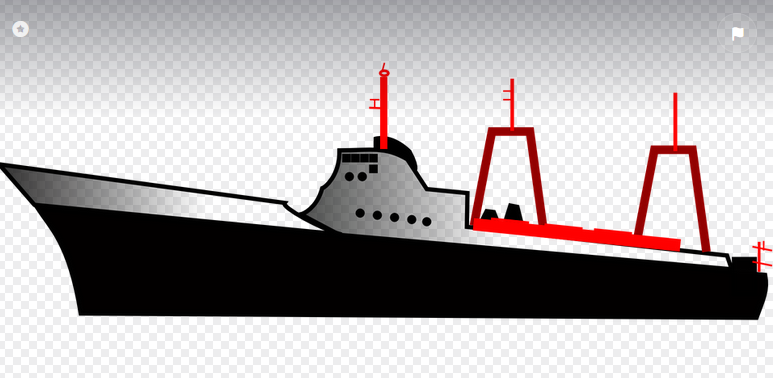Asia-Pacific markets were mixed Wednesday, with Wall Street’s decline bleeding into the new day and traders still anticipating possible trouble over trade. Those market behaviours came against the background of investors digesting quarterly earnings reports.
Meanwhile, Hong Kong’s Hang Seng Index declined 1.91% to close at 21,056.98. In the Mainland, the CSI 300 Index posted a modest gain of 0.31% to 3,772.82. Out of sync, the US threat of tariffs finally pressured several large investment banks to trim their annual growth outlooks for the Chinese economy — though the CSI 300 didn’t let that stop it from getting a pick-me-up from otherwise bullishness. This was particularly driven by a positive surprise in China’s economy, which grew by +5.4% q/q over the first quarter. Growth was previously projected to reach 5.1%.
Japan’s Nikkei 225 fell 1.01% to end at 33,920.4. South Korea’s Kospi index fell 1.21% to close at 2,447.43, and the small-cap Koda index lost even further, sliding 1.80% to 699.11. In Australia, the S&P/ASX 200 index closed at 7,758.9.
Economic Forecasts & Trade Tensions
Thanks to some new research produced by the bank, there’s a little bit of insight into how that might actually impact growth through trade disputes. UBS, meanwhile, has revised its gross domestic product (GDP) forecast for China to 3.4% in 2025 and 3% in the year after that. The investment bank’s chief China economist, Tao Wang, said the US tariff increase on imports from China provides “an outsized drag on Chinese GDP growth,” more than two percentage points.
China basically suspended all deliveries of Boeing jets by ordering all airlines in the country to stop taking deliveries due to the US trade situation, reports Bloomberg (ABCN). Such progress between the United States and China, according to Louis Navellier, founder and chairman of Navellier & Associates, could lower the likelihood that the two countries don’t talk to each other.
“We can now expect a resolution of the China/U.S. trade spat because Boeing and the technology industry are no doubt expending pressure on the White House,” Navellier stated.
US Market Performance
US stock futures slide ahead of key retail sales report and more Q1 earnings. Futures for the Dow Jones Industrial Average were down 139 points, or 0.3%, while futures for the S&P 500 and Nasdaq 100 dropped 0.7% and 1.1%, respectively.
US pre-market, all 3 major averages lower. Biggest movers Wednesday: Dow Jones: -155.83 points, or -0.38% (40,368.96) S&P 500 -0.17% 5,396.63 But the Nasdaq Composite slid 0.05% to 16,823.17, and the three averages had gained two days in a row going into this session.
Tokyo: Japan will not yield to pressure to exclude the Philippines and other nations in the Asia-Pacific from its trade talks, Foreign Secretary Albert Del Rosario said Sunday after a meeting of foreign ministers in Manila.
Takeshi Minami, Japan’s senior economic advisor to the prime minister, told the press Saturday, “We have many cards.”
His comments came just before chief negotiator Ryosei Akazawa arrived in the US on Wednesday for a three-day trip. He met with US Treasury Secretary Scott Bessent and US Trade Representative Jamieson Greer.
Niinami spoke with “cautious optimism” about the trade talks in an interview with the Nikkei here.
He cited Japan as “the number one foreign investor in the United States” and ”the number one foreign holder of U.S. Treasury bonds.”
China’s New Trade Negotiator
An official statement released recently in China also said that China had promoted Li Chenggang to vice minister of commerce and a key representative of international trade negotiations. It is this appointment that Li took over from Wang Shouwen.
Li had been more on the periphery of the trade negotiation team leading up to the U.S.-China trade talks. Thus far, neither party suggested an upcoming round of trade talks would occur, as neither end had removed tariffs.
Li is among the Chinese officials who attended such a conference a month back and met with “some of the top entrepreneurs.” There, they deliberated on private fears in private firms after President Xi Jinping signalled there would be more support for businesses in February.
Hong Kong Market Trends
Hong Kong stocks plunged, with the Hang Seng Index down more than 2%, led by tech and consumer cyclical stocks.
Chinese e-commerce company Meituan, which lost 6.74%, led its losses.
Another culprit for the index’s downfall.
Other Key Insights
China outperformed expectations with 5.4% growth for Q1. Nevertheless, US tariff threats have aided in trimming the annual growth outlook for several key investment banks in recent days, and the state-run meal being taken out away from the disk uses this track record to minimize shine.






